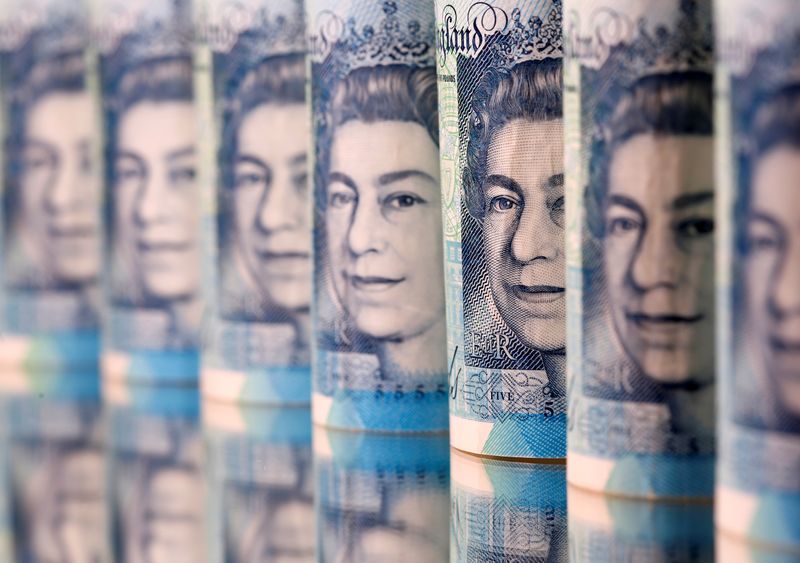By Jonathan Cable
LONDON (Reuters) - Sterling will lose some of its recent gains against a weaker dollar as year-end approaches, hurt by Brexit uncertainty and fears surrounding the coronavirus pandemic, a Reuters poll showed on Friday.
The pound
Britain has suffered the highest number of deaths from COVID-19 in Europe and lockdown measures imposed to try to stop the virus spreading further meant the economy contracted a record 20.4% in the last quarter.
The level of Britain's economic output would permanently be about 1.5 percentage points lower than it would have been without the pandemic, BoE Deputy Governor Dave Ramsden said on Wednesday and he warned the number could be higher.
To support the economy, like many its global peers, the central bank has slashed borrowing costs to a record low and ramped up its bond purchases.
On the flipside, the U.S. Federal Reserve has signalled its willingness to keep interest rates low for a prolonged period, weakening the dollar's outlook.
So while according to the Aug. 28-Sept. 3 Reuters poll of more than 60 foreign exchange strategists, cable would be trading at $1.31 in a month compared to the $1.33 it was hovering near on Thursday it would be back at $1.34 in a year.
That is higher than the $1.31 median forecast in an August poll but highlighting the uncertainty the 12-month forecast range was wide, going from as low as $1.20 all the way up to $1.47.
"The UK is under pressure from all sides – Brexit, COVID-19 and structural capital outflows," noted strategists at Jyske Bank.
"However, GBP remains undervalued, UK equities are heavily underweighted, and our main scenario is ultimately a limited, 11th-hour trade agreement with the EU."
Alongside trying to recover from the damage from the pandemic, Britain faces the added challenge of trying to agree a trade deal with the European Union before a transition period following its departure from the bloc finishes at the end of this year.
Successive Reuters polls have said a deal will be reached but the talks have been fractious and little progress has been made so at the end of November, a month before the transition period ends, sterling will be down at $1.30, the poll showed.
"Despite the current standstill in negotiations, we think that a basic FTA is still narrowly the most likely scenario this autumn. We think it's unrealistic to expect a sudden plunge in GDP once the transition period ends," said James Smith at ING.

Against the euro (EURGBP=), little movement was expected. One euro was worth around 89.0 pence on Thursday, and the poll suggested it would be worth 90.0p in a month and 89.0p again in a year.